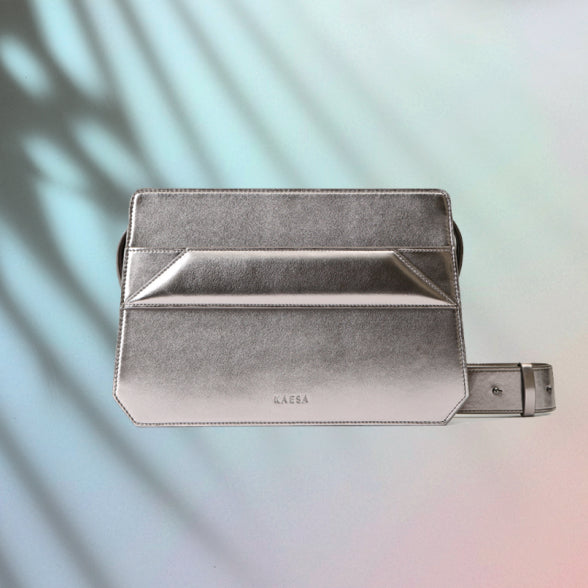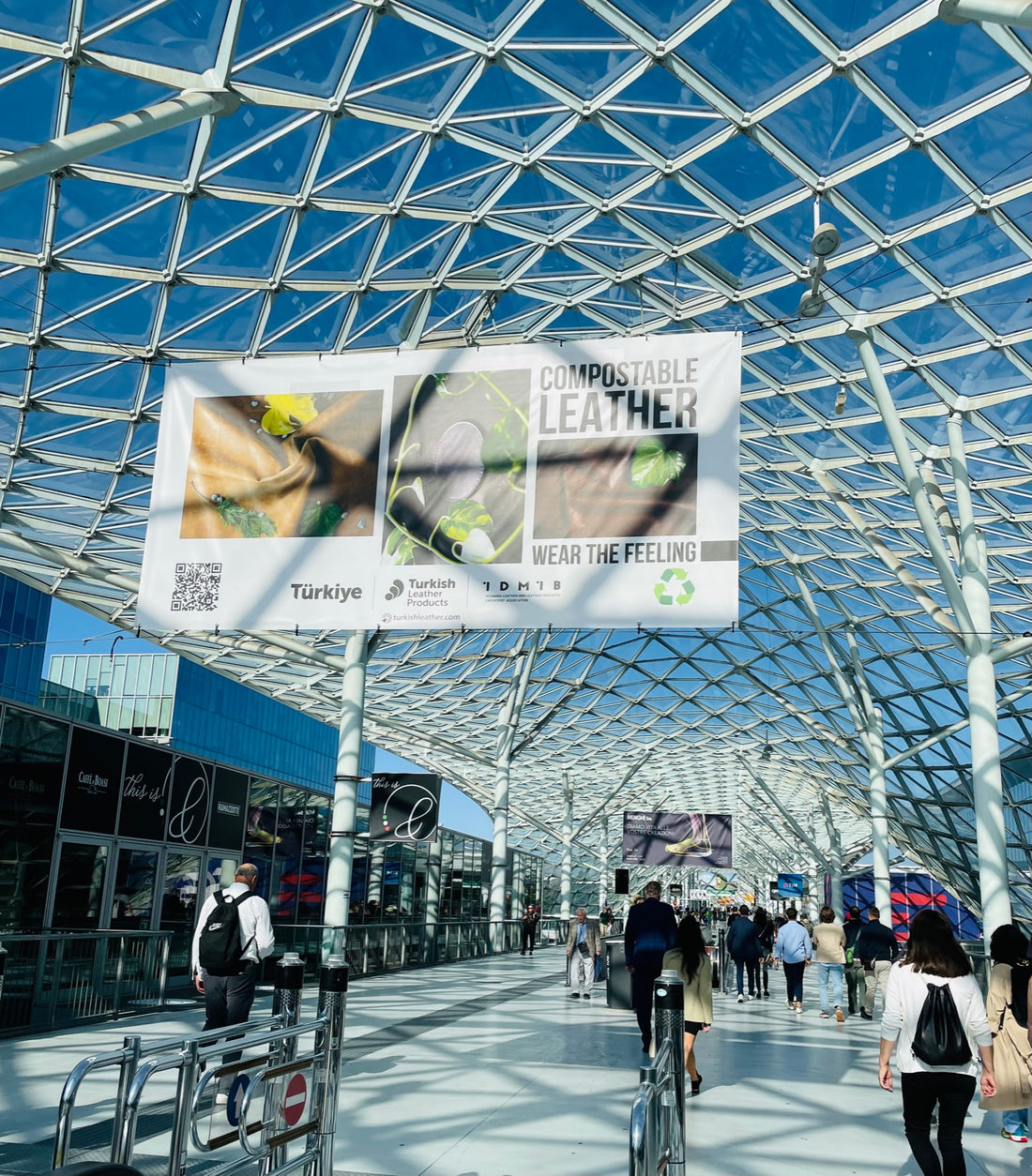Plant-Based Spotlight: Desserto Cactus Leather

The Evolution of Vegan Leather
Even if you aren’t into sustainable fashion, odds are you’ve probably heard the term “vegan leather” before. But what does it really mean for something to be considered “vegan” leather? While polyurethane (PU) leather may be the first thing that comes to mind, at its core vegan leather simply refers to leather that doesn’t contain animal skin.
Despite the term “vegan leather” not being introduced to the fashion industry until the 2010’s, the concept of alternative (or faux) leather actually dates back to the 19th century. Over the last two centuries, alternative leather has come in many forms, ranging from paper pulp to vinyl and even silicone. Over the last decade, PU leather has become the go-to alternative leather because it is cruelty-free while still maintaining the durability and visual appeal of animal leather.
However, as the sustainable fashion movement has continued to evolve, many have started to wonder: “can we have a leather alternative that is cruelty-free AND highly sustainable?” It is this question that has inspired designers and scientists alike to reimagine what the concept of “vegan leather” can truly mean.
This quest for greater fabric sustainability has led to the invention of a completely new vegan leather category known as “plant-based leather”. Despite being a fairly new innovation, plant-based leather has already seen rapid growth and is quickly gaining traction in the sustainable fashion movement and beyond. Plant-based leather takes the best of traditional vegan leather and goes a step further by providing consumers with fabrics that are cruelty-free, high quality and sustainably-made.
The Rise of Cactus Leather
One type of plant-based leather that has already made significant gains in the sustainable fashion industry is cactus leather, with a company called Adriano Di Marti leading the way with their flagship fabric “Desserto”. Adriano Di Marti is a world-renowned Mexican brand that has developed a sustainable, low-impact process for making vegan leather out of prickly pear cactus leaves.
Founded by Mexico natives Adrián López Velarde and Marte Cázarez, Desserto was born from a mission to create a more sustainable alternative to animal leather. After having worked in the fashion, automotive and furniture industries (which heavily rely on traditional leather production), Adrián and Marte saw firsthand how detrimental the environmental pollution these industries created is and felt driven to do their part to reduce environmental impact.
This determination led Adrián and Marte to leave their jobs and create their company Adriano Di Marti. They dedicated the next two years to intensive research and development, ultimately developing Desserto, a marketable, plant-based leather made from cacti. After creating their finished product, the pair was able to successfully showcase Desserto cactus leather in Milan, Italy in October 2019.

What Makes Desserto Sustainable?
Adriano Di Marti describes Desserto as “the world’s first highly sustainable and environmentally friendly organic material made of Nopal cactus, also known as the prickly pear”. Located in Zacatecas, Mexico, they grow their raw material (cactus) on a ranch that focuses on circular sustainability throughout every step of the production process.
On the ranch, only mature cactus leaves are harvested to prevent damage from occurring to the overall plant. The cactus is also a naturally regenerative plant, so a new harvest is yielded every 6-8 months. To conserve water, the ranch doesn’t have an irrigation system, instead opting to utilize local rainwater and naturally occurring earth minerals. The cacti grown on the ranch are inherently resilient, enabling them to endure both the cold of winter and the scorching summer heat.
Their cactus plantation is perennial, which means they only have to plant the cacti one time to yield a single plantation that will last for roughly 8 years. Cacti also naturally regenerate soil, which in turn lessens the need for land use change, reducing overall soil degradation and terrestrial CO2 emissions. In addition to having a low-impact growth cycle, these cacti actually go a step further by naturally absorbing CO2 at night and generating oxygen in exchange. Out of their 14 acres of cactus crop, the Desserto ranch is able to absorb 8,100 tons of CO2 annually compared to the 15.3 tons of CO2 the ranch produces each year.

Since these cacti species are already native to Zacatecas, the Desserto ranch actually helps increase the biodiversity of the surrounding area. Maintaining a fully organic ranch void of any pesticides or herbicides allows them to grow a USDA-certified cactus harvest without causing damage to the existing ecosystem. The thorns of the nopal cactus are also very small, making the harvesting process safer and easier for their agriculture team.
After the cactus leaves have been harvested, they are dried for 3 days in a solarium using natural sunlight instead of electric dryers. The organic dried leaves are then processed using their patented formula to create Desserto cactus leather. During production, roughly 3 cactus leaves are used per every one linear meter of Desserto cactus leather. Dedicated to pursuing their mission for circular sustainability, any raw cactus materials that weren’t used for production are exported and sold in Mexico for use in the food industry.
Cactus Leather Goes Retail
Wanting to bring sustainable innovation to two of the world’s most leather-dependent industries, Adrián and Marte have used their cactus leather expertise to create unique vegan leathers designed specifically for the fashion and automotive industries.
Their flagship fabric, Desserto, is specially suited for sustainable fashion because of its touchable softness, high performance durability and compliance with strict environmental and quality standards. This leather alternative offers designers a luxurious fabric that is both vegan and free of PVC, toxic chemicals and phthalates. Desserto also meets the technical specifications required by luxury products like fashion, leather goods and furniture.
To further expand the company’s product line and sustainable impact, Adriano Di Marti also developed a fabric exclusively for automotive use called Deserttex. This material was created to provide premium automotive brands with a cactus-based leather alternative that is sustainable while still performing to industry standards.

Despite being fairly new to the sustainable fashion scene, Adrián and Marte have already become global leaders in all things cactus leather. Since the company’s inception, Adriano Di Marti has collaborated with some of the world’s most prominent fashion and automotive brands including H&M, Fossil Group, Karl Lagerfeld, Adidas, Givenchy, Mercedes Benz and BMW. In addition to partnering with so many industry leaders, Desserto is also available for purchase by small businesses and designers who want to create products using sustainable cactus leather.
After years of research and ongoing product innovation, Adriano Di Marti has established cactus leather as a leading plant-based alternative capable of directly competing with animal and synthetic leathers. Available in a wide range of textures, colors and thicknesses, cactus leather has helped reshape the concept of sustainable fashion and proven that plant-based leathers can achieve commercial success while still prioritizing sustainability.
To learn more about Adrián and Marte’s Desserto journey, make sure to visit their website. And don’t forget to check out KAESA’s line of Desserto cactus leather products!



